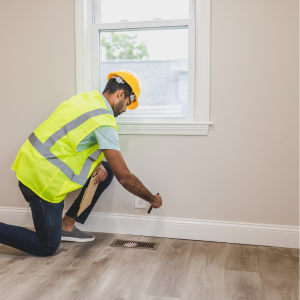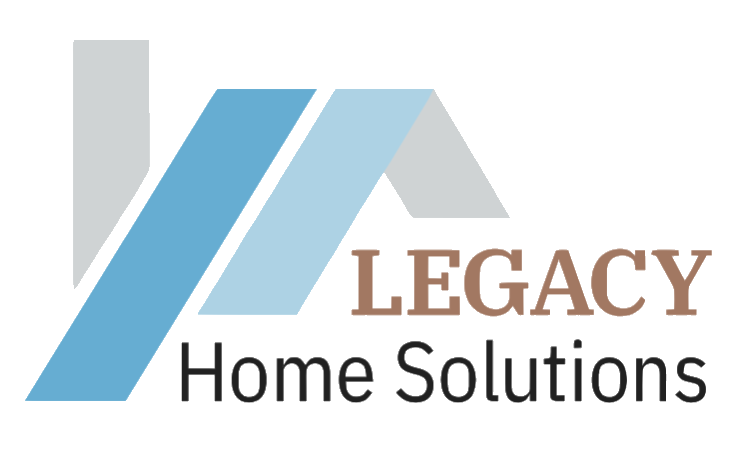
Understanding Code Violations in Ohio Real Estate
Understanding why attempting to sell a property in Ohio that already comes with code violations is not a walk in the park is crucial. Essentially, a code violation is defined as some action or lack thereof that does not conform to established building laws or municipal regulations governing the use of a particular property.
Selling property in Ohio comes with a set list of issues that range from as trivial as overheating water taps, some peeling paint, and broken windows to more moderate complications like malfunctioning electrical systems or electrical circuits, and even more advanced skeletal framework. Sellers often neglect to account for how these might hinder the ability to make any sales that would fetch a decent price for the property.
Before listing a property in Ohio, homeowners must conduct an exhaustive inspection to check for open code violations. Taking proactive measures during the home inspection eliminates any challenges that may arise during the negotiations, thus putting the seller in a good position as a preferred buyer candidate.
These problems could greatly slow the sale of a house. Still, expert real estate professionals, with knowledge of the compliance regulations and architectural design restrictions, can help sell code-noncompliant houses.
Identifying Common Code Violations in Ohio Homes
Understanding all problems is vital for any undertaking, like selling a house in Ohio with all legal issues included. As in the rest of the country, Houses in Ohio usually have infractions on codes regarding electrical wiring and lack of grounding, as well as dangerously high bypasses and grounding issues.
Widespread plumbing issues tend to be leaks or installations that do not comply with the Ohio Building Code. Additional structural problems can also arise, including, but not limited to, cracks in the building’s foundation and damage to the roof, which can pose serious issues during the inspection of the property.
Furthermore, insufficient ventilation and the absence of smoke detectors are two commonly overlooked areas that require immediate attention to comply with local regulations. Homeowners may also encounter zoning violations if alterations have been made without permits or the property does not observe the required setback lines.
Knowledge of these typical code violations aids buyers in preparing for the sophisticated transactions of Ohio’s competitive real estate market.
Can You Sell a House That Isn’t Code?
Selling a house with code violations in Ohio can be challenging, but it’s possible with the right strategies. Homeowners often wonder, “Can you sell a house that isn’t up to code?” The answer is yes, although it requires careful planning and understanding local real estate regulations.
First, disclosing currently outstanding code violations to potential purchasers upfront restrains confidence-building. Combine the principles of transparency and confidence-building by acquiring a pre-inspection report that will allow you to collect all issues and present the buyers with a snapshot view of the property.
Moreover, listing the property within a competitive selling range immediately enhances the likelihood of attracting prospective buyers, as sellers may also need to cover the cost of repairs. On the contrary, directly selling the property to real estate investors will likely accelerate the sale, as these people deal more frequently with difficult houses that comply with the codes.
Engaging with a sophisticated real estate expert who knows the legal frameworks governing the real estate market in Ohio is essential, as it helps in smoother legal navigation and negotiations for real estate transactions. These approaches to selling a home with code violations in Ohio let sellers transfer ownership despite these non-permissive codes. To get started with professional guidance, contact us today.
The Process of Correcting Code Violations Before Selling in Ohio

When selling a home with code violations in Ohio, addressing these issues before listing the property can significantly enhance its marketability. The first step is to conduct a thorough inspection to identify any existing code violations, including structural deficiencies, electrical problems, or plumbing issues.
Once identified, homeowners should consult with local contractors familiar with Ohio’s building codes to estimate repair costs and devise a plan for correcting these violations. Obtaining the necessary permits is crucial to ensure all work complies with state and local regulations.
Homeowners might also consider enlisting the help of an experienced real estate professional who understands the nuances of selling properties with past code violations in Ohio. Such agents can guide prioritizing repairs that deliver the highest return on investment and facilitate communication between all parties involved.
By addressing code violations upfront, sellers increase their chances of attracting potential buyers and mitigate legal complications during closing.
Steps to Take Before Listing a House with Code Violations
Before listing a house with code violations in the Ohio real estate market, homeowners should take strategic steps to enhance the property’s appeal and minimize potential setbacks. First, conducting a thorough inspection is crucial to identify all code violations, including plumbing problems, electrical faults, or structural deficiencies.
Engaging a certified home inspector can provide a comprehensive assessment of the property’s condition. Once identified, prioritize addressing minor repairs that can significantly improve the home’s safety and functionality without incurring substantial costs.
Homeowners should also gather and organize all pertinent documentation related to past improvements and repairs, as transparency is key in building trust with prospective buyers. Consulting with an experienced real estate professional who understands Ohio’s specific legal requirements and market conditions can offer valuable guidance on pricing strategies and marketing techniques tailored for properties with code violations.
Additionally, disclosing all known issues upfront in compliance with state regulations will help prevent legal complications while maintaining ethical selling practices. Legacy Home Solutions, LLC can assist you through this process to ensure full compliance and peace of mind.
How to Address and Fix Minor Code Violations Quickly
Addressing and fixing minor code violations quickly is crucial when selling a house with code issues in the Ohio real estate market. Start by conducting a thorough inspection to identify potential violations, including minor electrical faults, plumbing issues, or structural repairs.
Once identified, prioritize these minor repairs, which can significantly affect buyer interest and property valuation. Hiring licensed contractors familiar with Ohio building codes ensures that repairs meet local standards.
Simple fixes like replacing broken windows, repairing leaky faucets, or patching up small areas of damaged drywall can be done swiftly and affordably. Promptly resolving these issues improves the property’s appeal and provides leverage during negotiations by demonstrating proactive maintenance efforts to potential buyers.
Additionally, maintaining clear documentation of all repairs and upgrades can prove compliance with local regulations, further reassuring prospective buyers about the property’s condition.
Impact of Code Violations on Property Value and Sale
Code violations significantly impact property value and the sale process in Ohio real estate. Properties with unresolved code violations often decrease market value, as potential buyers may view these issues as costly and time-consuming to address.
This perception can lead to decreased buyer interest and prolonged time on the market. Additionally, appraisers may reduce their valuation of homes with code violations, further affecting the seller’s ability to negotiate a desirable sale price.
Sellers must disclose any existing code violations, which can deter buyers or result in offers contingent upon repairs or price reductions. To mitigate these challenges, sellers might need to invest in repairing major violations before listing or adjust their pricing strategy to reflect the property’s condition.
Understanding local regulations is crucial for navigating these complexities and achieving a successful transaction despite such obstacles.
Collaborating with Contractors to Resolve Residential Code Issues in Ohio
When selling a home with code violations in Ohio, collaborating with experienced contractors is crucial to resolving residential code issues effectively. Contractors familiar with Ohio’s building codes can provide valuable insights and practical solutions tailored to the specific violations your property might face.
By working closely with these professionals, homeowners can address problems such as electrical, plumbing, or structural deficiencies that often arise during inspections. Skilled contractors will help ensure compliance with local regulations and expedite necessary repairs or improvements within budget constraints.
This collaboration enables sellers to enhance their property’s marketability and attract potential buyers despite code challenges. Moreover, establishing a transparent communication channel between the homeowner and contractor can streamline the remediation process, ensuring all parties are aligned on timelines and expectations.
Engaging reputable contractors with a proven track record in handling code violation issues in Ohio assures that your home will meet the required standards before being listed for sale.
Legal Requirements for Selling a House with Code Violations in Ohio
Understanding the legal requirements for selling a house with code violations in Ohio is crucial for a smooth transaction. Ohio real estate laws mandate full disclosure of known code violations to potential buyers, ensuring transparency and preventing future legal disputes.
Sellers must provide prospective buyers accurate information about the property’s condition, including structural issues or non-compliance with local building codes. While Ohio law doesn’t require sellers to fix all code violations before selling, failing to address significant problems could impact the sale price or deter buyers altogether.
Engaging a knowledgeable real estate professional familiar with Ohio’s housing regulations can help navigate these complexities. Obtaining an inspection report that clearly outlines existing code violations may be beneficial, allowing you to negotiate repair responsibilities or adjust the sale price accordingly.
Additionally, consulting with a real estate attorney can ensure that all legal obligations are met and that appropriate disclosures are included in the sales contract, safeguarding against potential litigation.
Marketing Strategies for Selling a Home with Existing Code Issues

When selling a house with code violations in the Ohio real estate market, implementing effective marketing strategies is crucial to attract potential buyers. First, being transparent about any existing code issues in your property listing is essential, as honesty builds trust with prospective buyers.
Highlighting the property’s positive aspects, such as its location, size, or unique features, can help divert attention from the violations. Additionally, targeting real estate investors or cash buyers who are more accustomed to dealing with properties requiring renovations can increase interest.
Leveraging online platforms and social media to reach a broader audience while showcasing high-quality images and virtual tours will enhance your property’s appeal. Partnering with a local real estate professional experienced in handling properties with code violations ensures you have expert guidance on pricing strategies and negotiation tactics tailored for these specific circumstances.
Offering incentives such as covering closing costs or providing repair credits may entice potential buyers willing to address code compliance after purchase.
Negotiating the Sale Price for Houses with Unresolved Code Violations
When negotiating the sale price of a house with unresolved code violations in Ohio real estate, it is crucial to approach the process strategically. Investor home buyers in Cleveland and other cities in Ohio are typically wary of properties with code violations, which can impact their willingness to pay full market value.
Sellers should be prepared to provide detailed documentation of all known violations and potential repair costs, as transparency can build trust and facilitate negotiations. Obtaining estimates from licensed contractors in Ohio for repairs is beneficial, as it can be a point of reference during discussions.
Sellers might consider offering concessions or credits at closing to offset the cost of addressing these issues, making the property more appealing despite its flaws. Understanding local Ohio real estate market conditions and comparable property sales will also provide leverage when setting an appropriate asking price that reflects the property’s condition and potential after remediation.
Working with an experienced real estate professional who understands Ohio’s regulations and has expertise in dealing with homes facing similar challenges can further enhance negotiation outcomes by ensuring all parties have realistic expectations grounded in current market realities.
Attracting Investors Interested in Properties with Code Challenges
When selling a house with code violations in the Ohio real estate market, attracting investors interested in properties with code challenges can be a strategic move. These investors often seek opportunities to purchase homes at a lower cost, knowing they can renovate and bring them up to code for profit.
Highlighting the investment potential and showcasing existing plans or permits for necessary repairs can make the property more appealing. Emphasizing the location’s growth potential or proximity to desirable amenities can also help draw attention from savvy buyers who recognize long-term value despite current challenges.
Offering detailed information about the specific code violations and estimated repair costs allows transparent communication, which builds trust with experienced investors accustomed to dealing with such issues. Networking with local real estate investment groups and utilizing targeted marketing strategies via online platforms dedicated to distressed properties can further enhance visibility among those specifically interested in tackling code violation challenges within Ohio’s housing market.
Leveraging Cash Offers When Dealing with Houses That Have Compliance Issues
When selling a house in Ohio with code violations, leveraging cash offers can be an effective strategy to streamline the process and minimize complications. Cash buyers, often investors, are typically more willing to purchase properties with compliance issues because they have the resources and expertise to address these problems swiftly.
This approach eliminates the need for traditional financing, which can be problematic due to underwriting requirements that demand resolution of code violations before approval. By targeting cash buyers, sellers can negotiate deals that account for existing compliance issues, resulting in quicker transactions and fewer contingencies.
Additionally, cash offers reduce the risk of sales falling through due to appraisal discrepancies related to unaddressed violations. Engaging with real estate investors specializing in distressed properties can enhance your ability to sell your house for cash in Akron and surrounding cities in Ohio efficiently while mitigating the impact of any outstanding code issues on the property’s marketability in Ohio’s real estate landscape.
Disclosure Obligations When Selling an Ohio Property with Code Problems
When selling a house with code violations in Ohio, it is essential to understand the disclosure obligations required by law. Ohio’s real estate regulations mandate that sellers disclose any known material defects, including building code violations, to potential buyers.
This transparency fulfills legal requirements and helps build trust with prospective purchasers. Sellers must complete a Residential Property Disclosure Form accurately, detailing any issues related to structural integrity, electrical systems, plumbing faults, and other relevant code compliance areas.
Disclosing such information can lead to legal repercussions and jeopardize the sale process. By addressing and communicating existing code problems upfront, sellers can negotiate more effectively with buyers who may be willing to assume responsibility for repairs or adjustments as part of the transaction terms.
Understanding these disclosure obligations ensures a smoother real estate transaction within Ohio’s regulatory framework while safeguarding against future disputes or liabilities tied to undisclosed property conditions.
Financing Options for Buyers Purchasing Homes with Code Violation Issues

Buyers often face unique challenges when purchasing homes with code violations in the Ohio real estate market, particularly in securing financing. Due to the perceived risk, traditional lenders may hesitate to approve loans for properties with compliance issues.
However, alternative financing options can facilitate these transactions. One viable option is a renovation loan, such as an FHA 203(k) or Fannie Mae HomeStyle loan, which allows buyers to borrow funds for the purchase price and necessary repairs to bring the property up to code.
Another possibility is hard money loans, which are typically provided by private investors who focus on the property’s potential value rather than its current condition. Buyers might also consider seller financing, a flexible approach in which the seller agrees to accept installment payments directly from the buyer, bypassing traditional banks altogether.
Each financing solution offers a pathway for buyers committed to investing in properties with code violations while addressing necessary repairs and compliance issues head-on in the Ohio real estate landscape.
How to Use Contingencies Wisely When Selling a Problematic Property
Selling a house with code violations in Ohio can be challenging, but using contingencies strategically can help protect your interests and attract serious buyers. Here’s how to do it effectively:
- Understand the Role of Contingencies
– Contingencies are conditional clauses in real estate contracts that ensure specific requirements are met before finalizing the sale, protecting both the buyer and seller. - Include an Inspection Contingency
– Allow buyers to conduct inspections so they’re fully informed about the property’s condition and existing code violations. This builds transparency and trust. - Offer Repair or Credit Contingencies
– Instead of completing all repairs, negotiate financial credits or partial maintenance to address issues. This flexibility can make your property more appealing to buyers. - Consult a Real Estate Expert Familiar With Ohio Law
– Work with an experienced local agent who understands Ohio’s property regulations and how to draft contingency clauses that protect your legal and financial interests. - Craft Clear, Practical Contingency Clauses
– Ensure your contingencies are specific and realistic. This will give buyers enough confidence to move forward while safeguarding your ability to close the deal. - Use Contingencies to Ease Buyer Concerns
– Strategic use of contingencies shows buyers you’re serious and willing to address issues, which can lead to quicker, smoother negotiations. - Aim for a Smooth Closing
– When contingencies are used wisely, they reduce surprises and delays, helping you close on time even with a problematic property.
Case Studies: Successful Sales of Homes with Major Code Breaches
In the Ohio real estate market, selling homes with major code violations presents unique challenges, yet several case studies highlight successful strategies. One notable example involves a property in Columbus with significant electrical and plumbing violations.
The seller partnered with a knowledgeable real estate professional who is experienced in dealing with distressed properties. Accurately pricing the home to reflect its condition and potential repair costs attracted cash buyers interested in investing in fixer-uppers.
Another Cleveland case showcases how clear communication and transparency about existing code breaches can build trust with prospective buyers. Here, the sellers provided detailed inspection reports upfront, allowing buyers to understand the necessary repairs fully.
Additionally, leveraging Ohio’s robust network of real estate investors specializing in as-is properties helped secure a quick sale. In Cincinnati, a property facing structural code violations was successfully sold by highlighting its prime location and potential for renovation through virtual tours and appealing online marketing materials.
These examples demonstrate that while selling a house with code violations is complex, employing expert strategies such as accurate pricing, transparency, targeted marketing, and engaging local investors can lead to successful transactions even in challenging circumstances.
What Happens If My House Is Not Up to Code?
If your house is not up to code in the Ohio real estate market, it can present several challenges during the selling process. Code violations can affect the property’s value and attract fewer potential buyers due to safety concerns or additional renovation costs.
When a house has outstanding code violations, sellers might face legal hurdles and delays in closing transactions. Ohio homeowners must understand local building codes and regulations to address these issues effectively before listing their property.
Expert strategies for selling a house with code violations include obtaining a thorough inspection report, disclosing all known issues upfront, and offering repair credits or reduced pricing to entice buyers willing to undertake necessary renovations. Engaging with experienced real estate professionals familiar with Ohio’s housing codes can provide valuable guidance on navigating these complexities and ensuring a smoother sales process despite existing violations.
Should You Buy a House with Violations?
When considering whether to buy a house with code violations in Ohio real estate, weighing the potential benefits against the inherent risks is crucial. Purchasing a property with existing violations can offer significant opportunities for savvy investors or homebuyers willing to undertake renovations.
Homes with code violations are often priced below market value, allowing buyers to negotiate favorable deals. However, understanding the extent of these violations is essential.
Conducting thorough due diligence, including obtaining detailed inspection reports and consulting with local contractors who understand Ohio’s building codes, can help identify the necessary repairs and associated costs. It’s also important to consider financing options, as some lenders may hesitate to approve loans for properties with unresolved issues.
Buyers should evaluate their budget for addressing these violations and explore creative solutions such as leveraging renovation loans or negotiating seller concessions. Ultimately, purchasing a house with code violations requires careful planning and expert advice, but if approached strategically, it can be a profitable venture in Ohio’s dynamic real estate market.
Do you need to sell your home? Sell quickly, avoid costly repairs, or prefer a hassle-free sale. Legacy Home Solutions, LLC is here to help. We offer fair cash offers, handle all the details, and make the process seamless. Ready to sell or have questions? Call us at (440) 973-6024 for a no-obligation offer. Get started today!
| CLEVELAND, OH | CLEVELAND, OHIO | CITY OF CLEVELAND | LAWYER | LEGAL COUNSEL | REALTORS |
| LIENS | PROPERTY APPRAISAL | LEGAL ADVICE | HOME INSPECTORS | ZONING LAWS | |
| NATIONAL ELECTRICAL CODE | NATIONAL ELECTRICAL CODE (NEC) | MORTGAGE | MORTGAGE LOANS | LENDING | HEALTH |
| BATHROOM | SMOKE ALARMS | GFCI | GROUND-FAULT CIRCUIT INTERRUPTER | HOMEOWNERS ASSOCIATIONS | HOA |
| HOMEOWNERS ASSOCIATIONS (HOAS) | ELECTRICAL WIRING | CONSTRUCTION | PRESSURE | KITCHEN | JURISDICTION |
| FINANCIAL INVESTMENT | INTERNATIONAL RESIDENTIAL CODE | INTERNATIONAL CODE COUNCIL (ICC) | HEATER | HANDRAILS | CONFIDENCE |
